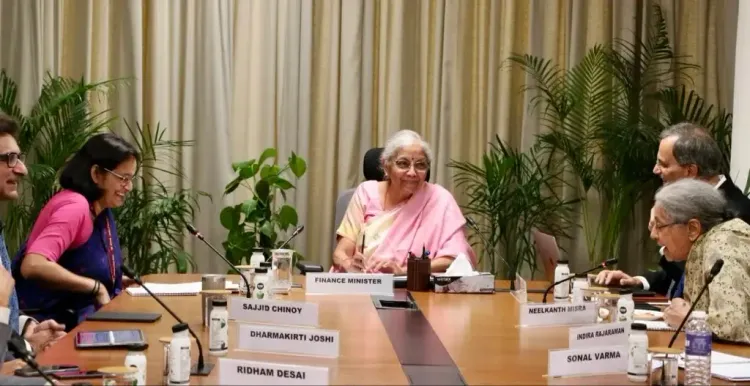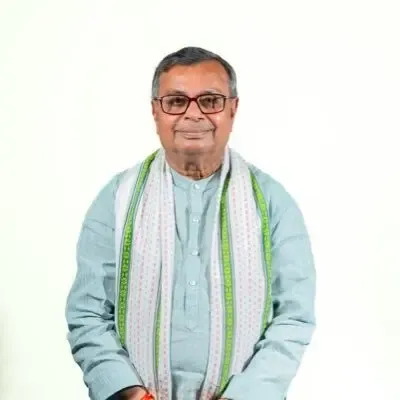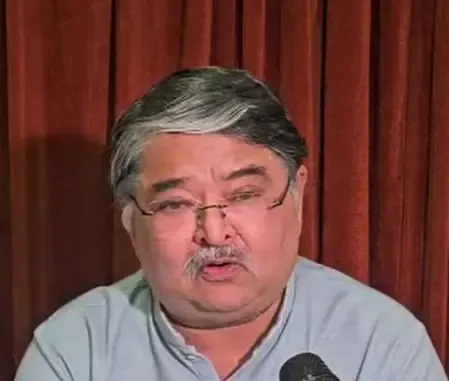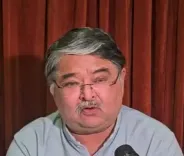What Insights Did FM Sitharaman Gain from Leading Economists During Pre-Union Budget Consultations?

Synopsis
Key Takeaways
- Finance Minister Nirmala Sitharaman held initial pre-budget consultations.
- Focus on enhancing the ease of doing business.
- Input from leading economists and industry representatives.
- Discussions on tax reforms and support for MSMEs.
- Engagement with various industry bodies will continue.
New Delhi, Nov 10 (NationPress) Finance Minister Nirmala Sitharaman convened her first pre-budget talks with prominent economists on Monday, gearing up for the forthcoming Union Budget 2026-27.
The meeting saw participation from Chief Economic Adviser (CEA) V. Anantha Nageswaran, along with other noted economists and senior officials from the Department of Economic Affairs (DEA).
“Union Minister for Finance and Corporate Affairs @nsitharaman presides over the inaugural Pre-Budget Consultation with leading economists in relation to the upcoming Union Budget 2026-27, in New Delhi, today,” stated a post on X from the Ministry of Finance.
“The Secretary of the Department of Economic Affairs (DEA) @FinMinIndia; and the Chief Economic Adviser, Government of India, alongside senior DEA officials, were also in attendance,” the ministry noted.
As part of the ongoing pre-budget discussions, the government is conducting a series of meetings with industry stakeholders to gather insights for the upcoming budget.
The conversations are primarily focused on improving ease of doing business and extending tax advantages to grassroots enterprises.
Recently, senior representatives from the PHD Chamber of Commerce and Industry (PHDCCI) met with Revenue Secretary Arvind Srivastava to convey the industry’s input on direct and indirect tax strategies.
PHDCCI CEO and Secretary General, Dr. Ranjit Mehta, mentioned that their discussions revolved around taxation and business facilitation. “We also emphasized improving the ease of doing business, which aligns with the government’s priorities,” he remarked, adding that the Chamber proposed targeted suggestions to alleviate liquidity issues faced by micro, small, and medium enterprises (MSMEs).
In parallel, the Confederation of Indian Industry (CII) has urged for extensive tax reforms in the Union Budget 2026-27, advocating for expedited dispute resolution, a simplified TDS regime, and digitized customs processes.
The apex industry group stressed the importance of transitioning to a “compliance system grounded in trust, simplicity, and technology,” while being accountable for administrative delays.
CII Director-General Chandrajit Banerjee emphasized the need for India’s tax framework to evolve from being dispute-oriented to being preventive. “The tax system should not only efficiently generate revenue but also serve as a catalyst for investment, innovation, and competitiveness. The upcoming budget can be a turning point for establishing a truly modern, transparent, and globally competitive tax system,” Banerjee articulated.
The government is anticipated to continue its dialogues with various industry organizations in the upcoming weeks before finalizing its proposals for the Union Budget.









